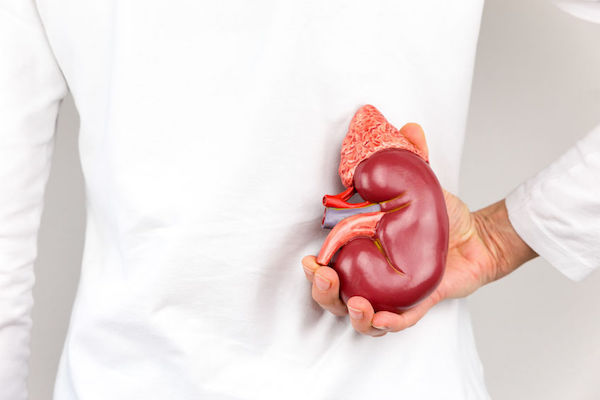Interstitial nephritis is a kidney disease marked by inflammation between the organs’ tubules.

The tubules of the kidneys play an important role in reabsorbing water and useful substances back into the body from the kidney filtrate and, alternately, ridding the body of waste products by secreting them into the filtrate which will go on to become a component of urine.
Interstitial nephritis is a condition that occurs when there is swelling between the tubules, which can affect kidney function. The condition may be short-lived (acute) or it can be chronic.
Up to 70% percent of interstitial nephritis is caused by drugs, in the form of an allergic reaction to certain medications such as antibiotics and non-steroidal anti-inflammatories. Other causes of interstitial nephritis include autoimmune disorders and infection.
What are its symptoms?
Interstitial nephritis may lead to acute kidney (renal) failure, so it’s important to seek prompt medical assistance if you are exhibiting the symptoms below.
Interstitial nephritis symptoms may be either related to the allergic reaction that caused the condition (for example, a rash) or suggestive that your kidneys are not functioning as they should. They include:
- Decrease in urine output
- Fever
- Blood in the urine
- Nausea and vomiting
- Fatigue
- Fluid retention, which may be noticed as swelling anywhere in the body
- Weight gain (from carrying additional water weight)
- Changes in mental state, such as confusion or, in severe cases, coma
- Rash
- Hypertension (high blood pressure)
- Enlarged kidneys
- Lower back pain
How is it diagnosed?
Based on a physical examination and thorough medical history, your doctor may order both blood tests and urinary tests to confirm an interstitial nephritis diagnosis.
They will also listen for abnormal heart and lung sounds, as fluid in the lungs is a sign of compromised kidney function. In some cases, an ultrasound of the kidneys may be performed too. You may be asked to stop taking whatever medications you may be using to see if this makes a difference to your condition.
It’s always important that you tell your doctor about any medication and supplements you’ve been taking, even those available over the counter.
What are your treatment options?
Interstitial nephritis treatment depends on the cause. In cases where the condition is drug-related, there may be no alternative but to discontinue the use of the causative medication. Thereafter symptoms should resolve quickly.
In cases where interstitial nephritis is not a reaction to a medicine, it can usually be resolved with anti-inflammatories.
In severe cases, dialysis (a treatment that uses a special machine to filter harmful waste, salt and excess fluid from your blood) may be required, but usually this is only for a brief period.
Dietary changes may also be required to alleviate the strain placed on the kidneys as they recover. This may include minimising your intake of salt and decreasing protein in your diet.
Can it be prevented?
In many cases prevention of interstitial nephritis is not possible. You may be able to reduce your risk of developing the condition by avoiding the unnecessary use of any medications.
A diet low in salt can also help improve kidney function, which may put you in a better position should you ever develop the condition.
IMAGE CREDIT: 123rf.com
